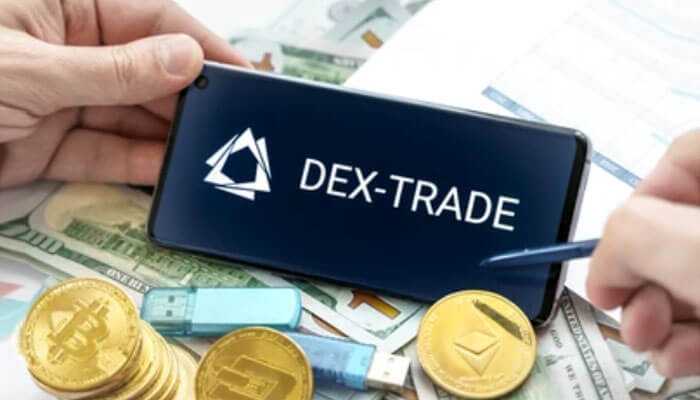Introduction
The cryptocurrency world has witnessed a remarkable transformation, particularly with the emergence of decentralized exchanges (DEXs). These platforms allow users to trade cryptocurrencies directly with one another without intermediaries. The rise of mobile DEX represents a significant step in this evolution, facilitating trading on the go and democratizing access to digital assets. Resources like Everix Edge can provide valuable insights and education for those looking to enhance their trading skills. This article delves into the factors driving the popularity of mobile DEXs, their advantages, challenges, and future trends.
The Evolution of Mobile DEXs
Decentralized exchanges began gaining traction around 2017, primarily as a response to the shortcomings of centralized exchanges, such as security breaches and lack of user control. Initially, DEXs operated primarily through desktop interfaces, limiting accessibility. However, as mobile technology advanced and the demand for flexibility grew, mobile DEXs began to emerge, enabling users to trade anywhere, anytime.
Advantages of Mobile DEXs
Accessibility and Convenience
One of the most compelling benefits of mobile DEXs is the ease of access they offer. Users can execute trades directly from their smartphones, allowing for real-time market participation. This convenience caters to the fast-paced nature of crypto trading, where market conditions can shift rapidly. Additionally, many mobile DEXs feature intuitive user interfaces, making it easier for both novice and experienced traders to navigate the platform.
Security Features
Mobile DEXs leverage advanced security mechanisms to protect users’ funds. Unlike centralized exchanges, which require users to deposit funds into their accounts, mobile DEXs allow users to retain control of their private keys. This eliminates the risk of losing funds to hacks that commonly plague centralized platforms. Smart contracts further enhance security by automating trades and enforcing agreements without human intervention, minimizing the potential for fraud.
Lower Fees and No Custodianship
Mobile DEXs typically charge lower fees than their centralized counterparts. Users can trade directly from their wallets, avoiding hefty withdrawal fees. Additionally, the absence of custodianship means that users are not at the mercy of third-party policies. This autonomy appeals to traders seeking to maintain full control over their assets.
Key Features of Leading Mobile DEXs
Several mobile DEXs platforms have risen to prominence in the market. For example, Uniswap, SushiSwap, and PancakeSwap offer unique features that cater to diverse user needs.
• Liquidity Pools:
Users can provide liquidity by depositing tokens into pools, earning rewards in return. This incentivizes participation and ensures sufficient trading volume.
• Staking Options:
Many platforms offer staking functionalities, allowing users to earn additional rewards on their holdings.
• Cross-Platform Integration:
Some mobile DEXs seamlessly integrate with decentralized finance (DeFi) protocols, expanding their utility and enhancing user experience.
Challenges Facing Mobile DEXs
Regulatory Hurdles
Despite their benefits, mobile DEXs face significant regulatory challenges. As authorities worldwide grapple with how to classify and regulate cryptocurrencies, mobile DEXs operate in a legal gray area. Stricter regulations could stifle innovation or lead to platform shutdowns, potentially impacting user trust and participation.
Technical Limitations
Scalability remains a pressing issue for DEXs. High transaction volumes can lead to network congestion, resulting in slow trade execution times. Additionally, the mobile environment is susceptible to security threats, including phishing attacks and malware. Users must remain vigilant and adopt best practices to safeguard their assets.
User Adoption Barriers
While DEXs offer numerous advantages, user education remains a critical barrier to widespread adoption. Many potential users may lack familiarity with the technology or may be hesitant to trust decentralized platforms over traditional exchanges. Addressing these concerns through educational initiatives and user-friendly interfaces is essential for broader acceptance.
Future Trends in Mobile DEXs Trading
The future of DEXs looks promising, driven by technological advancements and evolving user needs. Key trends include:
• Layer 2 Solutions:
These protocols enhance scalability and reduce transaction fees, enabling smoother user experiences on DEXs.
• Integration with Emerging Technologies:
Innovations like artificial intelligence and machine learning could optimize trading strategies, providing users with personalized insights.
• Community-Driven Governance:
Many DEXs are adopting decentralized governance models, empowering users to participate in decision-making processes and shaping the future direction of the platform.
Conclusion
The rise of mobile DEXs represents a pivotal shift in the cryptocurrency trading landscape. By combining accessibility, security, and user control, DEXs are paving the way for a more inclusive financial ecosystem. However, challenges such as regulatory scrutiny and technical limitations must be addressed to ensure their sustained growth. As the crypto space continues to evolve, DEXs are poised to play a crucial role in shaping the future of trading, enabling users to engage with digital assets anytime, anywhere.



